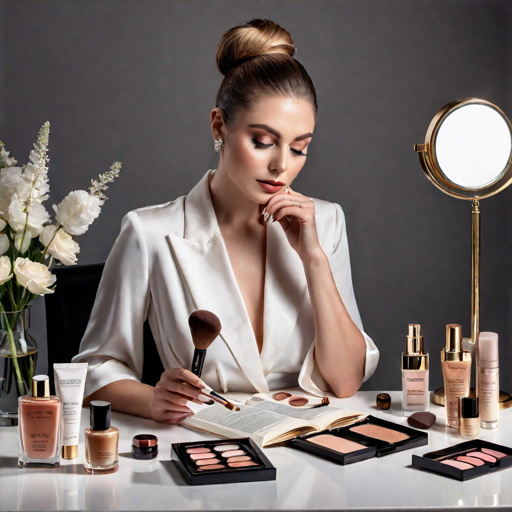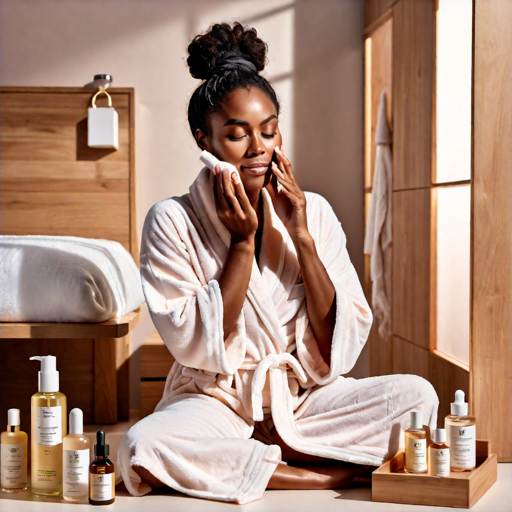Dear Beamers,
Welcome to our latest newsletter, brimming with insights across crucial sectors. In this edition, we shed light on a prevalent societal issue – counterfeiting. Recently, the NDLEA uncovered operations exploiting the pursuit of quick wealth, endangering lives with counterfeit products.
Today, we focus on the cosmetics industry, a prime target of this unsettling trend. We have thoroughly explored essential knowledge on counterfeit cosmetics, crucial for safeguarding your skin health. Don’t click away; immerse yourself in the depth of this article. Your skin deserves the authenticity and protection this article affords.
The cosmetics industry, a multi-billion-dollar powerhouse, witnesses a myriad of products and brands vying for a share of the colossal annual consumer spending. This surge has generated a culture of cosmetic-related social influence, transforming makeup application into both a trendy pastime and a coveted profession.
Concurrently, the market has seen a massive influx of expensive cosmetics, often produced in limited quantities, heightening consumer desire. As prices soar and demand escalates, the market also battles with a increase in counterfeit beauty products, posing challenges to authenticity and consumer safety.
Counterfeit cosmetics pose a significant threat to skin and overall health, masquerading as renowned designer brands and deceiving countless shoppers annually. Crafted to closely resemble genuine products, these fraudulent beauty and skincare items often fall short in quality compared to authentic counterparts. The near-perfect packaging replication, reaching nearly 100% similarity, complicates consumer detection, amplifying the adverse consequences experienced by unsuspecting users.
In Nigeria, counterfeit cosmetics, including makeup and hairstyling products, are prevalent in online marketplaces and pop-up shops. Numerous individuals have voiced concerns after unintentionally purchasing these imitation products.
One notable case is that of Omolayo Omisore, an eighteen year old residing in Lagos, Nigeria. Omolayo recounted her experience with great emotion, revealing,
“I mistakenly purchased a fake Nivea product for just ₦5, 085. The genuine Nivea kit, priced at three times more, was available. Initially, I thought it was just a bargain, but after a few days of using the fake body cream, stretch marks began appearing on various parts of my body. I kept applying it, thinking it was unrelated to the cosmetic and a sign of me increasing in size, until it spread to other areas. By then, the damage to my skin was irreversible.”

Countless individuals endure severe health issues stemming from inadequate knowledge when purchasing their preferred skincare products. Skin cancer has been strongly linked by experts to be one of the harmful consequences of counterfeit cosmetics. Counterfeit fragrances have been discovered to harbor DEHP, a substance classified by the Environmental Protection Agency as a probable human carcinogen.
To shed more light on the harmful effects of fake cosmetics, Miss Clara, 29, a skin care expert and enthusiast shared her knowledge.
“Counterfeit cosmetics frequently contain carcinogens like arsenic, beryllium, and cadmium. This trend is caused by our desire for affordability and immediate results. This has made many manufacturers to irresponsibly incorporate substantial amounts of these harmful ingredients into cosmetic formulations.”She added “Initially, users of fake body creams or makeup products may only experience symptoms like allergies, redness, pimples, and melasma. The danger worsens over prolonged use, leading to the development of skin cancer.”
Simultaneously, the use of counterfeit cosmetics accelerates premature skin aging. This is as a result of chemical infiltration which leads to dryness, acne, and dark spots, ultimately hastening the aging process.
Another known effect is Cosmetic contact dermatitis (CCD). CCD encompasses a spectrum from mild irritation to severe discomfort, leaving lasting dermatological effects. Individuals using cosmetics, particularly those with conditions like atopic dermatitis or disrupted skin barrier function, face an elevated risk of CCD.
Also, Lead is prominently present in lipstick, a vital beauty product for women. Counterfeit makeup, in particular, may contain up to 19 times the legal limit of lead, leading to long-term exposure and subsequent lead poisoning. This condition poses serious health risks, including memory loss, joint and muscle pains, headaches, and heightened dangers for pregnant women, such as miscarriage or premature birth.
Counterfeit makeup often harbors deadly elements, including bacteria, mercury, E. coli, aluminum, rat feces, and human urine. Exposure to these substances can lead to allergic reactions, skin rashes, eye infections, diarrhea, anemia, and even kidney failure. If you experience any of these symptoms after using cosmetics, it is crucial to promptly inform your doctor for timely diagnosis and appropriate treatment.

The next pertinent query is: How can one identify counterfeit cosmetics? Various methods can help discern a fake beauty product.
Microbiology student Frank Chizoba, hailing from a Nigerian university, suggests several ways to spot counterfeit skincare packaging.
“First and foremost, prioritize purchases from reputable brands and authorized retailers to ensure authenticity. Exercise caution by scrutinizing price differentials – if it seems too enticing, investigate further. Before any purchase, assess the packaging for any discoloration or missing barcodes, as well as the product’s consistency, which should mirror the genuine item. Avoid sharing skincare products, and if there’s a suspicion of a counterfeit, discontinue use immediately.”
He emphasized “Don’t overlook expiration dates; vigilance in this regard is crucial. “
Preserving skin health is not just a matter of aesthetics; it’s a shield for confidence and self-esteem. Counterfeit cosmetics pose insidious threats, from lead poisoning to harmful bacteria. Skin, our outer identity, suffers the consequences. Amid the strong desire to get your favourite cosmetic, prioritize authenticity in your beauty choices. Choosing genuine products becomes a powerful act of self-preservation. Let your skincare routine reflect not just beauty but a commitment to health, confidence, and self-esteem. At the end of the day, safeguarding your skin is safeguarding your identity.




